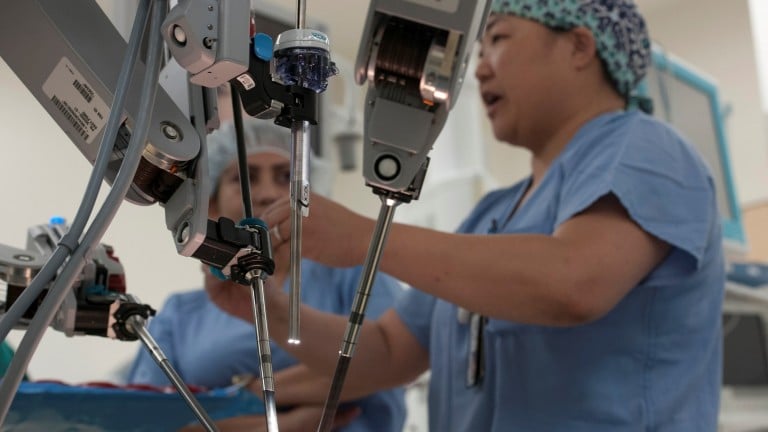New research suggests that the labor-saving practice of robotic surgery is making it difficult for junior doctors to learn how to perform operations.
Rise of the robo-surgeon: Surgical robots are used by over one-third of U.S. hospitals. Over the past decade, the robots have been used for more and more types of surgery.
The impact on training: The robots mean less human work is required in the operating room. According to a paper published Tuesday in Administrative Science Quarterly, that takes away training opportunities from new doctors going through their residencies. In the past, younger doctors had “hands in patient” roles that were useful to senior surgeons. Now they’re superfluous: the robot performs many of their previous tasks.
Surgeons without skills: The study found that senior surgeons often took over from younger medics during training, so they didn’t get enough experience to learn. After completing their residencies, young doctors were not adequately prepared to complete robotic surgeries alone.
Want to stay up to date on all things future of work? Sign up for our new newsletter, Clocking In, launching later this month!

